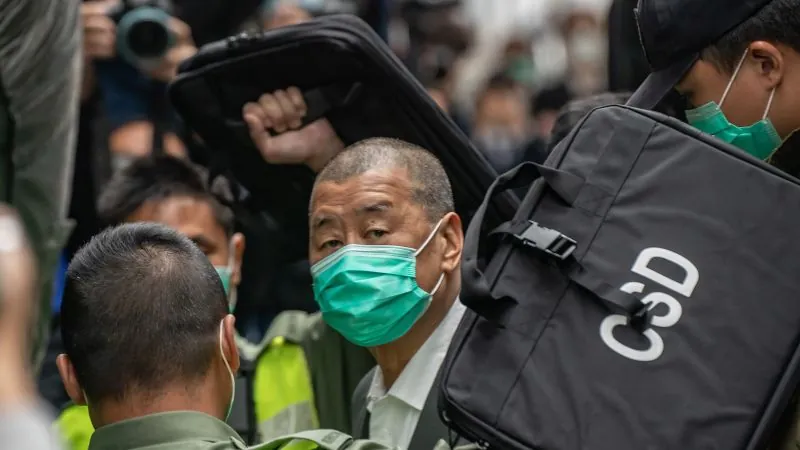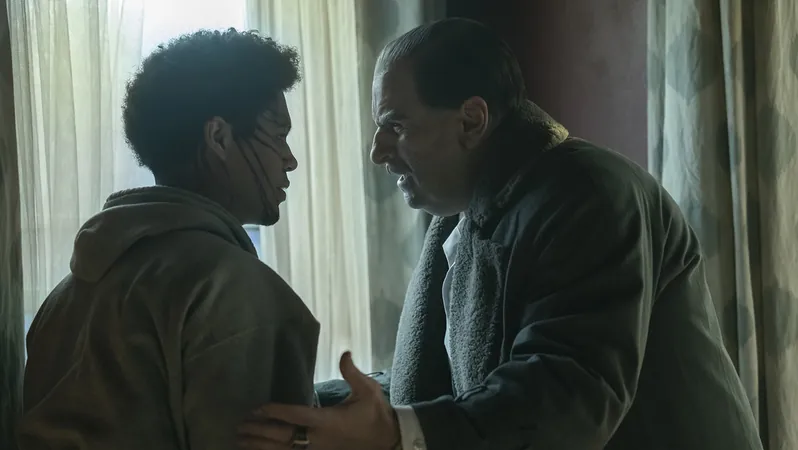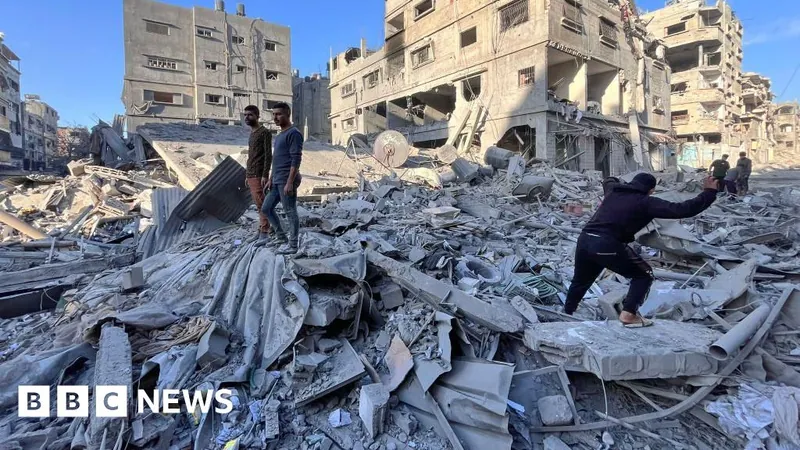
Jimmy Lai Speaks Out for the First Time in Years as His High-Stakes Trial Unfolds in Hong Kong
2024-11-20
Author: Jessica Wong
Significant Moment for Press Freedom
In a significant moment for press freedom and pro-democracy advocacy, Jimmy Lai, the prominent Hong Kong media tycoon and founding force behind the now-defunct tabloid *Apple Daily*, took the stand at his national security trial on Wednesday, marking his first public testimony in nearly four years. At 77 years old, Lai’s return to the courtroom against the backdrop of a tightening crackdown on dissent in Hong Kong has captured international attention.
Lai's Court Appearance
Wearing a green cardigan over a brown blazer, a visibly thinner Lai waved to his supporters in the packed public gallery as he entered the courtroom, flanked by police officers. Among those in attendance were his family, including his wife and daughter, and respected figures like Cardinal Joseph Zen, a vocal critic of Beijing and close friend of Lai.
Serious Accusations
Lai faces serious accusations, including two counts of colluding with foreign forces under the controversial national security law implemented in 2020, along with a separate charge of sedition. If convicted, he could face a life sentence. Throughout his testimony, Lai maintained his innocence, vehemently denying the charges and asserting that lobby efforts for Hong Kong’s independence are a 'conspiracy' designed to ensnare him.
Political Climate
The courtroom atmosphere has been tense, reflective of the broader political climate in Hong Kong. Participants in the pro-democracy movement are facing severe repression, highlighted by a recent trial where more than 40 prominent activists received sentences of up to a decade for subversion. This includes Joshua Wong, a widely recognized face of the movement, who made a passionate declaration of love for Hong Kong prior to his sentencing.
Global Context
Lai’s testimony is also significant in the context of shifting global political landscapes; his appearance comes shortly after Donald Trump’s victory announcement, who has previously expressed support for Lai and advocated for his release. Despite this, Lai clarified on the stand that he had never personally interacted with Trump, suggesting his aides might have briefed him about Lai’s situation.
International Support
The call for Lai’s release has also echoed internationally, with UK Prime Minister Keir Starmer raising his case during discussions with Chinese President Xi Jinping at the recent G20 summit, expressing concerns over Lai’s deteriorating health during his incarceration.
Unprecedented Trial
The trial itself is unprecedented since the 1997 handover of Hong Kong from British to Chinese control, representing a significant shift in the city's legal and political landscape. Lai's testimony covers his commitment to democracy, asserting that *Apple Daily* was built on principles of freedom and the rule of law, and that he has never supported violent methods during the protests.
Impact of National Security Law
Since the enactment of the national security law, critics argue that Hong Kong's once-celebrated freedoms have all but evaporated. The media landscape, once thriving with independent voices, has seen a drastic decline, with outlets like *Apple Daily* and *Stand News* forced to shut down.
Vision for Hong Kong
In a stark reminder of the city’s changing dynamics, the national security framework has reshaped not only media freedom but also the very fabric of civic discourse, silencing dissent and leading many activists to flee overseas.
Testimony on Freedom
During his testimony, Lai articulated his vision for a free Hong Kong, emphasizing the vital importance of information dissemination in empowering the populace. He expressed a passionate belief that knowledge is key to freedom, stating, 'The more information you have, the more you are in the know, the more you’re free.'
Future of Democracy & Press Freedom
The trial continues amidst growing concerns regarding the future of democracy and press freedom in Hong Kong, raising questions about the city’s ability to balance its unique identity against increasing pressure from Beijing. As the proceedings unfold, eyes from around the world are focused on Lai, a symbol of resistance in a rapidly evolving political landscape. How this trial concludes could have lasting implications for Hong Kong and its people, reflecting the ongoing struggle for autonomy and civil liberties in the face of authoritarian governance.




 Brasil (PT)
Brasil (PT)
 Canada (EN)
Canada (EN)
 Chile (ES)
Chile (ES)
 España (ES)
España (ES)
 France (FR)
France (FR)
 Hong Kong (EN)
Hong Kong (EN)
 Italia (IT)
Italia (IT)
 日本 (JA)
日本 (JA)
 Magyarország (HU)
Magyarország (HU)
 Norge (NO)
Norge (NO)
 Polska (PL)
Polska (PL)
 Schweiz (DE)
Schweiz (DE)
 Singapore (EN)
Singapore (EN)
 Sverige (SV)
Sverige (SV)
 Suomi (FI)
Suomi (FI)
 Türkiye (TR)
Türkiye (TR)